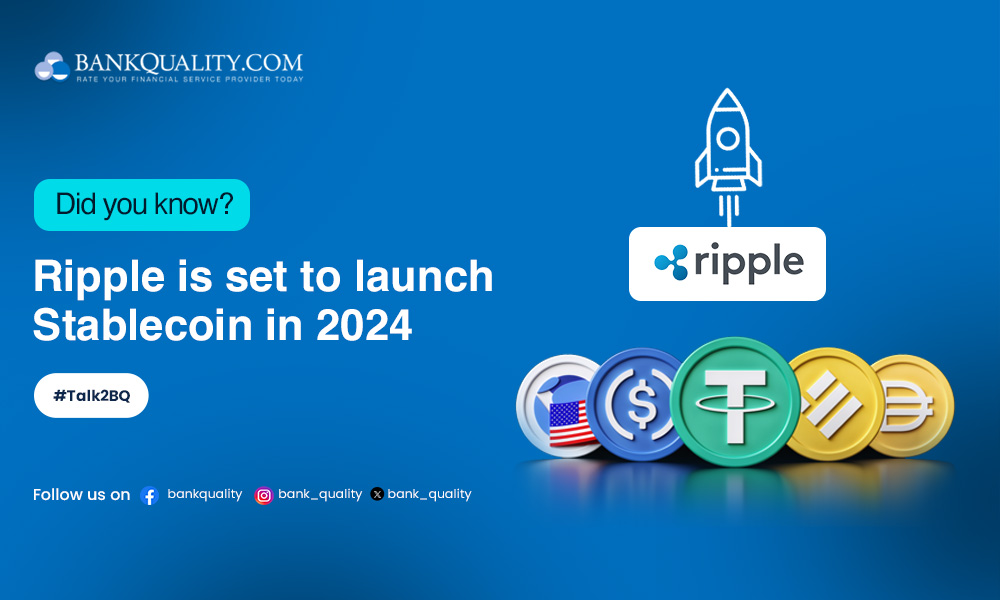
Blockchain payment company Ripple intends to introduce its stablecoin later this year. The US dollar and other comparable assets will support this stablecoin, facilitating easier transactions on the Ripple network.
A third-party accounting firm will audit the reserve assets associated with Ripple's stablecoin, and the company will publish results every month. This is an important step towards integrating cryptocurrencies with traditional finance.
Why is Ripple launching a stablecoin?
A stablecoin introduction by Ripple was prompted by incidents involving competitors like as Tether and Circle. With the market unstable as a result of events like the collapse of TerraUSD and exposure to Silicon Valley Bank's failure, Tether's USDT and Circle's USDC have difficulty keeping their $1 peg. Although Tether asserts that its reserves are of the highest calibre, critics have expressed doubts regarding the company's reserves and its capacity to withstand a bank run.
Ripple emphasised the need to add a reliable stablecoin to the XRP Ledger (XRPL) in light of the ecosystem's anticipated growth and wider acceptance. The company saw the opportunity to enter the stablecoin sector, which is estimated to be worth $2.8 trillion by 2028 and is presently valued at approximately $150 billion. The launch of a stablecoin is in line with Ripple's strategy to broaden its product line and adapt to changing market demands. A licence to offer digital payment token services was obtained by Ripple's Singaporean subsidiary in October 2023, demonstrating the company's dedication to the Asia-Pacific region as its headquarters and a major hub for the expansion of cryptocurrency-enabled payment solutions.
With the U.S. Securities and Exchange Commission (SEC), Ripple is expecting a settlement that might total millions of dollars. In 2020, the SEC sued Ripple, claiming that the company had sold XRP to investors illegally and without the required registration. A recent court decision made it clear that XRP is not regarded as a security in and of itself, but classified sales to institutions as illegal securities transactions. According to information provided by the US District Court for the Southern District of New York, Ripple allegedly sold over $729 million worth of XRP to hedge funds and other expert purchasers. This upcoming settlement highlights the regulatory obstacles that Ripple and the cryptocurrency industry as a whole must overcome.